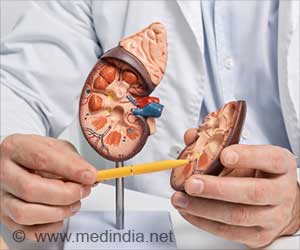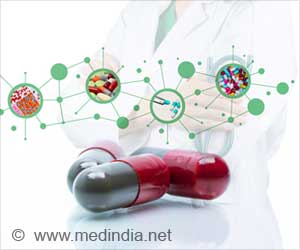Researchers have identified how a specific gene mutation triggers an inflammatory cascade that may drive development of treatment-resistant cancers.

Why Do Cancer Treatments Stop Working?
Tumors that lose the STK11 gene are tough to treat because they resist traditional chemotherapy and many of the latest immunotherapies. Understanding how and why this mutation leads to cancer is a critical step in developing improved treatments. STK11 mutations occur when the instructions encoded by the gene are disrupted. This causes the gene to produce insufficient levels of the protein LKB1, a tumor suppressor that keeps cell growth under control (1✔ ✔Trusted SourceDrug Resistance in Cancer: An Overview
Go to source).
‘Targeting rampant inflammation that boosts cancer growth, may make therapy-resistant cancers more responsive to treatment.’





Loss of LKB1 derails critical cellular checks and balances and allows cancerous cells to grow unimpeded. It is among the most common genetic mutations in human cancer, especially treatment-resistant lung cancer and pancreatic and cervical cancers.It also is the main player in the rare disease Peutz-Jehgers Syndrome. People with Peutz-Jehgers Syndrome develop polyps in their digestive tract and have a significant increase in cancer risk.
How to Overcome Treatment Resistant Cancer?
Although LKB1 has long been linked to cancer, it was not clear exactly how it worked to promote tumor growth. Earlier research hinted that control of inflammation by LKB1 may be the culprit but the mechanism was unknown. The new study findings offer a clearer picture of the process.LKB1 works in part by regulating inflammation, which is a normal part of the body’s defense mechanisms against injury and infection. When LKB1 is lost, it triggers an epigenetic change in cells, which affects how the instructions encoded in DNA are acted upon (2✔ ✔Trusted Source
LKB1 controls inflammatory potential through CRTC2-dependent histone acetylation
Go to source). This results in rampant inflammation that damages healthy cells and may push them closer to malignancy.
In addition to cancer, this new study will inform new therapeutic strategies for Peutz-Jehgers Syndrome, which has few treatments and no cure. The next step is to develop strategies to target inflammation in LKB1-associated cancers.
The research team is also planning to continue exploring LKB1 in Peutz-Jehgers Syndrome with the goal of working toward new, much-needed therapies for people with this condition.
Advertisement
- Drug Resistance in Cancer: An Overview - (https://www.ncbi.nlm.nih.gov/pmc/articles/PMC4190567/)
- LKB1 controls inflammatory potential through CRTC2-dependent histone acetylation - (https://www.sciencedirect.com/science/article/pii/S1097276523002885)
Source-Eurekalert











